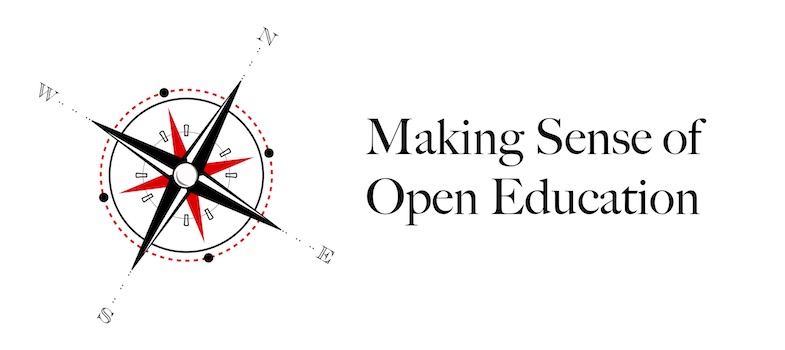What struck me most and what I was least familiar with was the Open Education in School Movement that emerges in the 1960s and 1970s. Its focus on reducing barriers (literal and figurative) and on responding to the individuality of students, their interests sparked two connections for me - i) To the initial Day 3 reading and the emergence of student-driven education systems in the middle ages and ii) to the Universal Design for Learning principles that are so commonly referenced in the present.
I would say that this aspect of OEP - the learner-led creation and innovation - is the piece that most often gets lost in conversations about OER (at least at my institution). The focus is so often on the 'content' - the open texts, learning objects, and open source software - and on the potential associated cost savings, that the more important impacts for learners - the ability to create, innovate, connect, and collaborate - is overshadowed or lost.
This focus on the content or the 'what' also seems to be borne out in the citation analysis. OERs have many more hits and many more connections than most other concepts.
I won't have a chance to draw the picture, but maybe I can recreate it with words. If I were to draw, I would draw a picture of a student surrounded by many, many OER trees. And the message I would be hoping to communicate is that we don't lose focus on the broader impacts of OEP on student learning (the forest) and become distracted by the push to create more and more trees (OERs).
